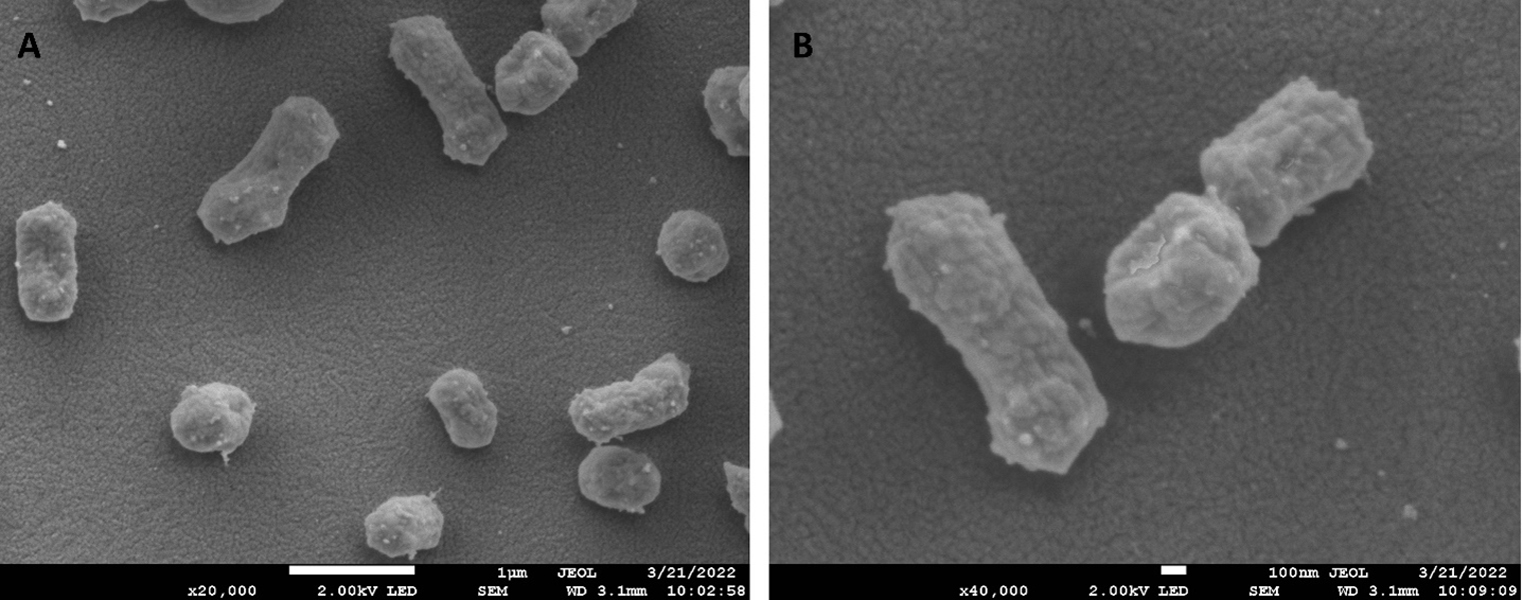Bouras, H., Quesnelle, Y., Barozet, A., Goux, D., Blin, J. L., Savary, M., Zatylny-Gaudin, C., & Houssin, M. (2023). First isolation of Francisella halioticida strains from blue mussel (Mytilus edulis) in Normandy, France. Journal of invertebrate pathology. 10.1016/j.jip.2023.107950
Mass mortality events affecting the blue mussels Mytilus edulis have been observed in France since 2014. The DNA of the bacterium Francisella halioticida, reported as pathogen of giant abalone (Haliotis gigantea) and Yesso scallop (Mizuhopecten yessoensis) has been detected recently in mussels from areas suffering mortalities. Isolation of this bacterium was attempted from individuals collected during mortality events. Identification was performed by 16S rRNA gene sequencing, real-time specific PCR and MALDI-ToF using spectra produced from the strain 8472-13A isolated from diseased Yesso scallop in Canada. Five isolates were identified as F. halioticida by real-time specific PCR and 16S rRNA sequencing. MALDI-ToF allowed the direct identification of four isolates (FR22a,b,c,d) which had 100% identity on the 16S rRNA gene with the known strains. On the other hand, one isolate (FR21) was not recognized by MALDI-ToF and had 99.9% identity on the 16S rRNA gene. The FR22 isolates showed difficult growth and required media optimization, which was not the case with the FR21 isolate. For these reasons, it was hypothesized that two type strains are present on French coasts, named FR21 and FR22. The FR21 isolate was selected for phenotypic analysis (growth curve, biochemical characteristics, electron microscopy), phylogenetic analysis and an experimental challenge. This isolate showed distinct differences compared to published F. halioticida strains, both at phenotypic and genotypic levels. Experimental infections of adult mussels led to 36% mortalities in 23 days following intramuscular injection with 3 × 107 CFU while a lower dose (3 × 103 CFU) did not lead to significant mortalities. In the context of this study, the strain FR21 was not virulent towards adult mussels.
BOREA contact: Hélène Bouras, helene.bouras@unicaen.fr
Mass mortality events affecting the blue mussels Mytilus edulis have been observed in France since 2014. The DNA of the bacterium Francisella halioticida, reported as pathogen of giant abalone (Haliotis gigantea) and Yesso scallop (Mizuhopecten yessoensis) has been detected recently in mussels from areas suffering mortalities. Isolation of this bacterium was attempted from individuals collected during mortality events. Identification was performed by 16S rRNA gene sequencing, real-time specific PCR and MALDI-ToF using spectra produced from the strain 8472-13A isolated from diseased Yesso scallop in Canada. Five isolates were identified as F. halioticida by real-time specific PCR and 16S rRNA sequencing. MALDI-ToF allowed the direct identification of four isolates (FR22a,b,c,d) which had 100% identity on the 16S rRNA gene with the known strains. On the other hand, one isolate (FR21) was not recognized by MALDI-ToF and had 99.9% identity on the 16S rRNA gene. The FR22 isolates showed difficult growth and required media optimization, which was not the case with the FR21 isolate. For these reasons, it was hypothesized that two type strains are present on French coasts, named FR21 and FR22. The FR21 isolate was selected for phenotypic analysis (growth curve, biochemical characteristics, electron microscopy), phylogenetic analysis and an experimental challenge. This isolate showed distinct differences compared to published F. halioticida strains, both at phenotypic and genotypic levels. Experimental infections of adult mussels led to 36% mortalities in 23 days following intramuscular injection with 3 × 107 CFU while a lower dose (3 × 103 CFU) did not lead to significant mortalities. In the context of this study, the strain FR21 was not virulent towards adult mussels.
BOREA contact: Hélène Bouras, helene.bouras@unicaen.fr




